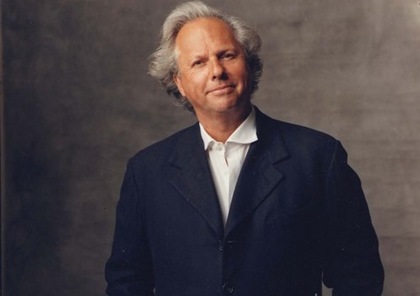Vanity Fair editor falls into partisan trap over Wall St reform

Vanity Fair's editor, Graydon Carter, laid out a compelling case for Wall St's hijacking of Washington DC. Unfortunately, he allowed blatant partisanship to cloud his objectivity when evaluating the role of Senate Republicans in the battle for financial reform.
In his editorial, Mr. Carter presented a strong case for Wall St's virtually uncontested role in influencing DC lawmakers on matters related to regulation, transparency, and accountability in financial markets. He called out the likes of Robert Rubin, Goldman Sachs, Morgan Stanley, and Citigroup. He rightly pointed out that Wall St enjoyed a veritable boom after receiving the unprecedented taxpayer bailout, while stiffing struggling small businesses. And he also rightly identified the clear-cut disparity between Wall St and Main St after the epic financial rescue.
Mr. Carter was also spot on when bringing to our attention that fact that Republican Senator Richard Shelby and Republican Senator Mitch McConnell have received substantial Wall St donations, while debating financial reform on the banking committee.
These are all well-supported facts.
However, Mr. Carter neglected to call out Democrats as well. While Republicans have been soaking up Wall St donations in 2010, so have Democrats. According to the nonpartisan Center for Responsive Politics, of the $34 million given by the securities and investment industry in the 2010 election cycle, 62% has gone to Democrats and 37% to Republicans.
Leading Democratic Senators Chris Dodd and Charles Schumer have received nearly $10 million in Wall St donations over the last couple of decades. Democratic Senators Harry Reid and Blanche Lincoln have held huge Wall St fundraisers this year.
President Obama received nearly $15 million from the securities and investment industry during his presidential campaign, and approximately $1 million from Goldman Sachs employees.
It is also worth noting that a strong Goldman Sachs connection currently exists in the Obama administration.
Greg Craig, Obama's first White House counsel, joined Goldman Sachs. Rahm Emmanuel, Obama's White House Chief of Staff, was paid $35,000 as a consultant to Goldman Sachs while also working as Bill Clinton's top campaign fundraiser. Warren Buffett, one of Obama's top economic advisers, is a staunch supporter of Goldman Sachs. Mark Patterson, Treasury Secretary Timothy Geithner's Chief of Staff, was a Goldman Sachs lobbyist before joining the Treasury. Gary Gensler, Chairman of the Commodity Futures Trading Commission, and Robert Hormats, Undersecretary of State for economic, energy, and agricultural affairs, both worked for Goldman Sachs before joining the Obama administration.
And let's not forget that current Obama economic adviser, Larry Summers, and former Clinton Treasury secretary, Goldman Sachs CEO, and Citigroup Chairman, Robert Rubin, were strong advocates for rolling back market regulations in the '90s.
So, instead of railing against Republicans, Mr. Carter should have been railing against both Republicans and Democrats. Emotionally-based partisanship only serves to entrench the two-headed, one-party monster. Top levels of both parties have been stained by powerful corporate interests and Wall St lobbyists. Both parties do the bidding of Goldman Sachs and the big banks.
Until Mr. Carter and other highly influential and intelligent individuals like him wake up to this fact and cast off the counter-productive fetters of blind partisanship, Main St will continue to suffer at the hands of party elites and Wall St banksters.




